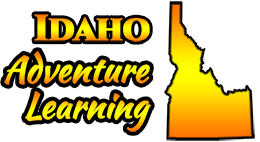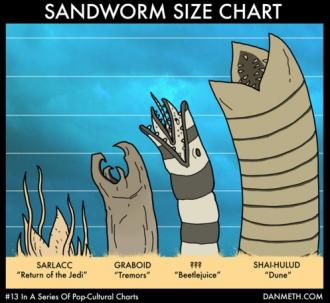Climate Change and YOU! OR How I Learned to Quit Denying Anthropogenic Climate Change and Start Freaking Out for Real
Submitted by Justin Hand on Wed, 2016-07-13 00:00
Today's focus: What are some impacts from climate change that we're experiencing in Idaho? How might you convey these ideas to students? The first question was more or less answered in the paragraph above. I hope I was specific enough. If it's not obvious, I should mention that "climate change" is generally a more appropriate term than "global warming," because in many places it becomes wetter and even cooler, not just warmer. PReviously, I mentioned how interconnected everything is in our world, our state, our watershed, so experiencing earlier run-off with less quantity in the summer... Well, the impact should be fairly obvious.
How can you convey this to your students? I suggest having them run through the experiment outlined above. The necessary equipment is pretty cheap and simple to acquire, and I am guessing your science teachers will give you access to spring scales, used to weigh the discharge and track it month-to-month. I'm sure a more in-depth conversation about the impact would be necessary and the experiment would benefit from plenty of scaffolding (Sam and Luke suggested that the experiment be given on the second day of the lesson, after a day of examining the relationship between snow and rainfall to water availability throughout the year, as well as evidence of humanity's impact on global temperatures and its rapid rise from the 1970s onward).
Well, things got pretty dry there for a moment, not unlike the skin of a desert-hardened Fremen, trudging along the Dunes of Arrakis in an awkward, shuffling non-pattern, attempting to avoid attracting a highly territorial sand worm, or Maker, and avoiding being consumed and slowly digested over the course of thousands of years (kidding, of course; that's a carpal sarlacc [duh]).


Comments
Day 3: Global Warming and climate change
Justin,
Your humor in your blog is great. I agree with the term Climate change over Global warming. It brings the topic down from the global level and may put it where my kids might think more about it.. perhaps on a smaller, Idaho scale they can understand that it is a real problem for us. A lot of my student's families are farmers and they understand low water years and high water years, but none of them really think that lack of water is an issue. I had a student that said that his dad would just drill the well deeper. This, of course, was not what I wanted to hear from the student, but it gave me a starting point about climate change, snow accumulations, precipitations, and aquifers. I plan to use the Climate Change phrase over the Global warming and discuss the water issues that we could have in rural southern Idaho.
Water Shortage in the big ID?
I believe that our efforts toward conservation of water is awesome and that now is the time to start. I think that we need to use our time in front of our students to emphasize the importance of things of this nature. However, one of the most shocking things I heard today is that Idaho is totally set for water and that water shortage is pretty far down on local farmers' list of priorities. Just thought I'd share that surprising tidbit. Thanks for sharing your thoughts with me, Carly. Keep on!
What are some impacts from climate change in Idaho?
This is pretty hard for our students to see, heck it's hard for our adults to see. We see the Boise River flowing and people floating it all summer. We see Lucky Peak full enough to boat all summer. We see Lake Lowell full enough to have people boat all summer and fish. We are allowed to use so much water in Idaho at a personal level that it makes it almost impossible to see that our aquafirs are getting lower and how the precipation pattern is changing here. Bogus Basin had a big snow year this year which again leads our population to think everything is ok here. I just think the more data you can share and show about snow levels, amount of water in the snow, aquafer data, the more informed out students will be and maybe open their eyes to what's going on with our state and planet. Heck North Carolina and a few other states passed a law saying they will NOT discuss or plan for any climate change with state law or planning...